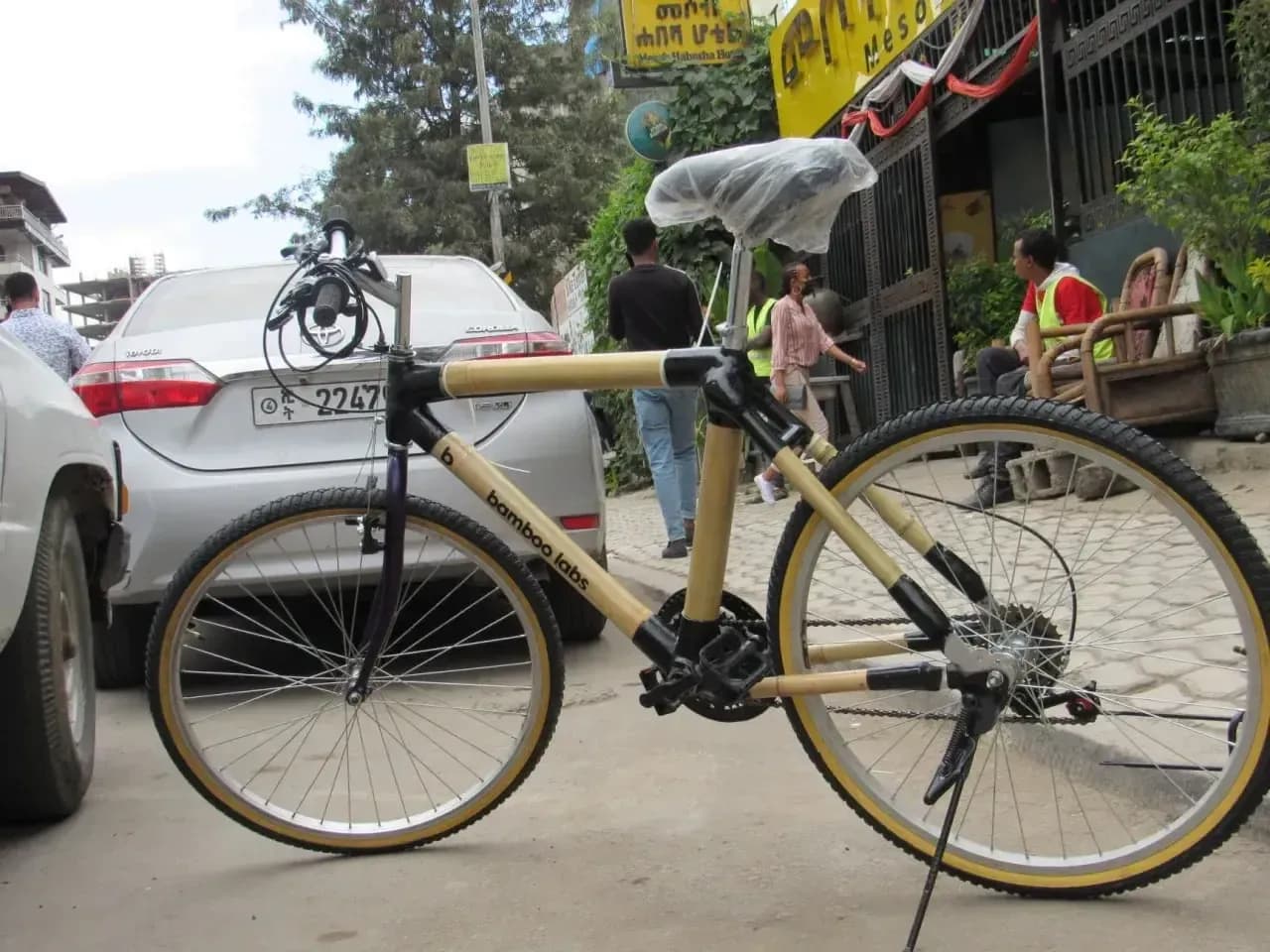Progress for 0 ad
Progress for 1 ad
Progress for 2 ad
Progress for 3 ad


Munir Shemsu
Addis Ababa, Ethiopia

Bamboolabs, a four-year-old Ethiopian social enterprise known for its innovative bicycles and wheelchairs crafted from the bamboo tree, is preparing to expand operations into Kenya. Abel Hailegiorgis, the company’s founder, told Shega that their first activities are scheduled to begin in two weeks with a two-week training program in Nairobi. He added that the necessary manufacturing inputs, including transport and shipping for nearly 100 bamboo bicycles, have already been secured.
“Kenya has the next largest bamboo resource in Africa,” Abel said. “We hope to replicate our operations there.”
Ethiopia is home to two major bamboo species: Yushania alpina, or highland bamboo, and Oxytenanthera abyssinica, or lowland bamboo. Both thrive across the country’s varied ecological zones. With the evergreen perennial covering more than 1.4 million hectares, Ethiopia accounts for roughly 7 percent of the world’s bamboo resources. Kenya, by comparison, has slightly over 150,000 hectares of natural bamboo. Bamboo, the fastest-growing and most regenerative plant on Earth, has attracted attention for its eco-friendly properties and strength, which in some applications rivals steel.
Abel announced the expansion at the German Embassy on Sunday during a ceremony marking the visit of a delegation attending the Second Africa Climate Summit in Addis Ababa. Bärbel Kofler (PhD), Parliamentary State Secretary at the Federal Ministry for Economic Development and Cooperation, and Jochen Flasbarth, State Secretary at the Federal Ministry for the Environment, were a part of the visiting delegation. The first summit provided a platform for Abel to meet the private investor funding Bamboo Labs’ Kenyan operations.
In recent years, bamboo has gained recognition in global climate action discussions. It offers a sustainable alternative to high-carbon materials like concrete and steel, stores carbon when used in furniture and construction,and has proven effective in climate-smart housing. For Abel and his team, the motivation has been to create sustainable, affordable transport solutions and assistive devices for people with disabilities.
The company sources bamboo from the lush forests of Sidama Regional State, Wolaita, and Injbara zones, harvesting plants that have reached an optimal maturity of three to five years. The bamboo undergoes rigorous treatment to prevent rot, insect damage, and cracking before being cut and shaped for bicycles, wheelchairs, and other designs.
Despite the vast potential, Abel says Ethiopia’s bamboo resources remain underutilized. He credits a study opportunity offered by GIZ at the Technical University of Munich for allowing him to acquire advanced skills, which he has since applied to innovate in bamboo design and manufacturing.
👏
😂
❤️
😲
😠

Munir Shemsu
Munir S. Mohammed is a journalist, writer, and researcher based in Ethiopia. He has a background in Economics and his interest's span technology, education, finance, and capital markets. Munir is currently the Editor-in-Chief at Shega Media and a contributor to the Shega Insights team.
Your Email Address Will Not Be Published. Required Fields Are Marked *